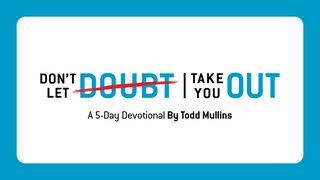Holy Week - Easter 2022Sample

In Mark 12, we find Jesus calling into question the actions and motives of the Jewish religious leaders of the day. In the week leading up to his arrest, Jesus is doing what he has always done: preaching and teaching in His Father’s house. Yet He holds no punches with the religious leaders.
Each day in Jerusalem, various leaders of the Jewish community attempt to trick Jesus into saying something that would lead to an arrest, either on charges of blasphemy against God or inciting against Rome. Yet He saw through their hypocrisy and returned their questions with His inquiries. In Mark 12:1-12, He uses a parable to describe the deplorable way they have treated God and God’s people. With a relentless agenda to establish and maintain their status, they had long forgotten their role: to provide for, protect, and spiritually guide the people of Israel. These religious leaders had become more like wolves than shepherds. Instead of caring for the people like good shepherds, they burdened and often rejected the neediest among the flock for their gain. It’s no wonder that Jesus admonished them so severely.
So, when Jesus came preaching servanthood, compassion for the least of these, caring for the sick, and noticing those whom culture dismissed, this Servant Messiah was not only unrecognizable to them, He was a threat to their way of life. Jesus even goes so far as to praise the small offering of an impoverished widow above the grand tithes of the religious leaders (Mark 12:43). They had devoted their entire lives to serving God, yet they could not recognize the very Word of God standing before them.
Because we already know how this story ends, we can easily criticize the religious leaders as we read these passages. However, it is much more challenging to acknowledge the Pharisee within our hearts. It is worth asking God if there is any area of our lives where we might not recognize that Jesus is standing before us.
As these leaders gathered to plot Jesus’ destruction, their shared hatred served to justify their actions. Remember, sin loves company; the more people we find who agree with us, the more validated we feel in our actions. Is there any situation where we have followed our “rightness” down the path that leads to a hardness of heart? Have we ever allowed anger to fuel our decisions to the point that we land in a place of hatred and sin?
The Apostle Paul makes it very clear in his letter to the church at Ephesus (Ephesians 4:26 NIV), “In your anger do not sin.” Anger itself is not sinning. But anger can easily lead us into sinful actions; as 1 John 3:15 tells us (NIV), “Anyone who hates a brother or sister is a murderer…” If our anger has led us to hatred, bitterness, rage, malice, words of gossip, etc., we can be sure that we are not following the Spirit of God, for he would not lead us into that place. (Ephesians 4:30-31)
So what is the answer then? “Be kind and compassionate to one another, forgiving each other, just as in Christ God forgave you.” (Eph. 4:32 NIV) Compassion and forgiveness: the two missing pieces that Jesus offered those who plotted to kill him and what He offers us freely today. And in turn, fueled by the Holy Spirit, we can offer these things to others.
REFLECTION
What might you miss with a closed-off heart?
Pray that the Holy Spirit gives you an open heart, especially in areas where you may have strong feelings or opinions. Invite Him to show you what causes you to close your heart off to Him, others, or even a particular person. Ask God to help you stay more openhearted to others.
Scripture
About this Plan

In this plan, we follow the final week of Jesus' life before facing the cross. Join us for an eight-day study of the last lessons He left with us and how we can follow Him today.
More
Related plans

Don't Let Doubt Take You Out

Journey With Jesus 365

The Benefits of Shared Spiritual Goals: How Starting as Friends First Enhances Romantic Relationships

Protect Your Peace

Sound of Heaven: A 6-Day Devotional by Danny Gokey

Every Place

Radical Love

Mandates for Men: Serve Others

In Her Image: Character Study of the Proverbs 31 Woman
